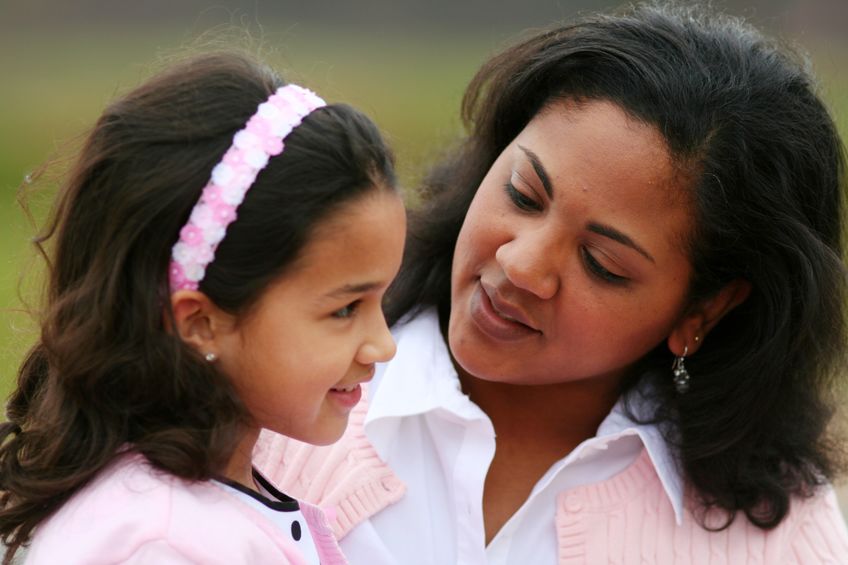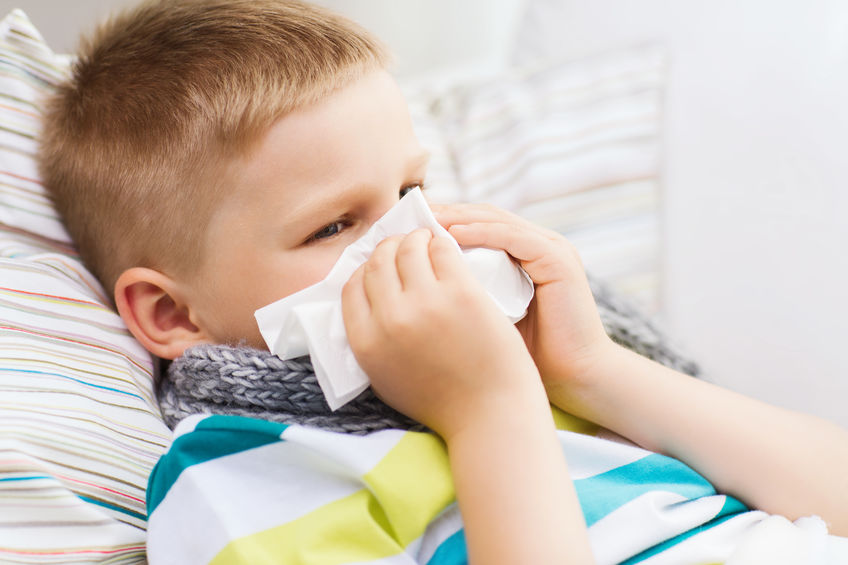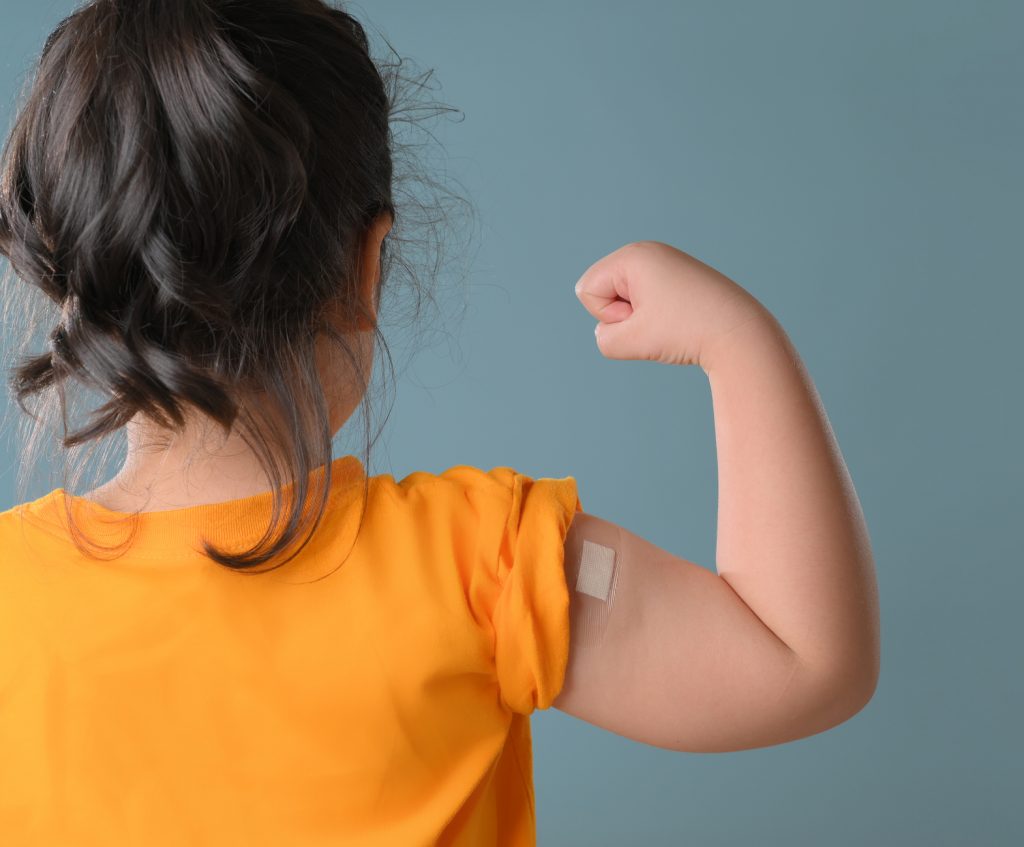
This time last year, the state of the world was uncertain — especially for children.
As the COVID-19 pandemic spread around the globe, playdates were put on hold, family gatherings were suspended, and school suddenly looked vastly different. Meanwhile, children did their best to adapt to these sometimes confusing changes.
Now, as vaccinations continue to roll out, and the pandemic shows signs of winding down, you and your family might be taking a collective sigh of relief. However, it’s crucial to remember how much your family has been through, and how that impacts your child’s mental health.
May is Mental Health Awareness Month, a time to raise awareness about mental health — especially given the added pressures of the pandemic. Adverse childhood experiences (ACEs), including those related to COVID-19, can set the stage for mental and physical health concerns both now and down the road.
Adverse Childhood Experiences & COVID-19
Adverse childhood experiences from the COVID-19 pandemic may be related to:
- Illness (of themselves or a loved one)
- Loss of loved ones
- Economic instability
- Interrupted daily routines, such as with school or daycare
- Quarantines in violent or abusive situations
The good news is that children are resilient. This Mental Health Awareness Month, take the time to support your child as they heal, reconnect with loved ones, and work through their emotions from the COVID-19 pandemic.
The Impact of Traumatic Experiences on A Child’s Mental Health
You do everything in your power to keep your family safe. But sometimes, life has a different plan. Child trauma can come from a wide range of experiences, from the death of a loved one to a natural disaster to a global pandemic like COVID-19.
Traumatic experiences can lead to reactions such as:
- Severe and ongoing feelings of emotional upset
- Symptoms of depression or anxiety
- Problems connecting with others or forming attachments
- Attention difficulties
- Problems in school
- Trouble sleeping (including nightmares) or eating
- Physical symptoms, like aches and pains
- Engaging in risky behaviors, such as drug or alcohol use or unhealthy sexual activity
In the long term, child trauma survivors may also be more likely to have health problems, like diabetes and heart disease. This may be because they are predisposed to lifelong stress, anxiety, smoking, and physical inactivity. They may also have trouble maintaining healthy relationships and employment.
Fortunately, even when children go through a traumatic event like a global pandemic, they don’t always develop traumatic stress. When it comes to COVID-19, there are many factors at play, including:
- The severity of their experience with the pandemic, such as if they or any loved ones became ill or needed hospitalization, or if they know someone who lost their life to COVID-19
- Their exposure to the pandemic, such as how much news coverage they witnessed or how frequently loved ones talked about the pandemic
- The response of their community, including feelings of supporting one another and safety measures being taken
Additionally, because children rely on caregivers for a sense of safety and security, how you respond to trauma is key to how it will impact them both short and long-term.
Ways To Help Your Child Bounce Back From the COVID-19 Pandemic
The event itself isn’t what makes something traumatic for a child — it’s much more about how they react to it. While you Can’t make COVID-19 go away, the support you provide your child right now can help alleviate trauma.
Some ways to support your child’s mental health as the pandemic winds down include:
- Empathize with what they are feeling. Navigating a global pandemic is tough — and it’s important not to undermine your child’s feelings. Validate their feelings by saying something like, “It seems like you’re feeling sad about missing out on summer camp. I know how much that experience means to you.”
- Give them space to talk. Don’t try to fix your child’s challenging emotions. Instead, give them a space to talk about what’s upsetting them — and then actually listen. (Read more about asking what your child is feeling during stressful times.)
- Purposefully work on major skills. Identify a couple of developmental milestones, like completing tasks independently or being respectful of their siblings. Then, find small ways for them to practice these skills.
- Don’t feel the need to overdo it. Don’t feel pressured to constantly go above and beyond. For instance, your child might have the time to learn a new instrument — but that doesn’t mean they have to. Relaxing and having fun are still important to their mental health.
- Be patient. Recognize that it’s normal for your child to feel a little off when so much has been taken from them. Take it one day at a time, and be patient as your child navigates this difficult time.
When to Seek Professional Help For Your Child
In some cases, it may make sense to get extra support for your child. To start, look for major changes in your child’s feelings or behavior that don’t go away. For instance, if your child avoids spending time with family or has stopped caring about an activity they used to love, something else may be going on.
Additionally, watch for signs of post-traumatic stress disorder (when a child gets stuck in the recovery period following trauma) and adjustment disorders (when a child has an unusually strong reaction to a stressful event).
Common signs of post-traumatic stress disorder include:
- Being preoccupied with the trauma, including through distressing recollections, flashbacks, and nightmares
- Avoiding people, place, and situations that are reminders of the trauma
- Trouble sleeping or concentration
- Feeling jumpy or easily irritated/angered
Adjustment disorders, on the other hand, often show up as persistent anxiety, sadness, restlessness, or irritability. These symptoms will normally start within three months of the trauma and last for no more than six months after it has ended.
Remember — signs of emotional distress can appear much later. Just because your child seems fine and well-adjusted right now doesn’t mean that you don’t need to continue to keep an eye on them.
If you think your child would benefit from professional help, contact their pediatrician. They can discuss the next steps to give your child the support they need.
As you and your family continue to navigate the tail end of the COVID-19 pandemic, keep supporting one another. And don’t forget to have fun. Whether you plan a family game night or build a fort in the living room, do your best to lift your child’s (and your own) spirits as everyone adjusts to life after the pandemic.
We’re here to support you and your child. If you have any questions or concerns about your child’s mental health, don’t hesitate to reach out to their pediatrician.



